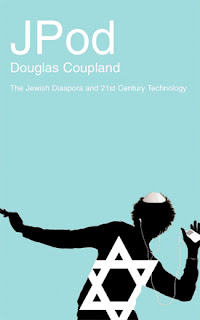
There’s something astoundingly pleasant about living below the poverty line, and that is that your laundry never takes long to sort.
I'm starting to get nervous about paying my rent when the program is over.
I’ve been trying to write about the book workshops we’re doing at the CPC, but it’s so up-and-down, it’s impossible to record anything accurately. One minute I’ve chosen the worst imaginable profession and no idea I have is original or marketable, and the next moment our fake publishing house is infallible, and every person in it is someone I want to work with in the future. Today fit into the latter category for the most part, so we won’t talk about yesterday.
My position is co-editor. I’m fond of it. Though the design and production people get to do beautiful visual work and the marketing and publicity people seem happy with their brainstorming meetings, I am happy to stay after everyone leaves each night to make sure everything is precisely in order. I feel better that way. My team is incredible – I can’t tell you how lucky I am to have them. Our CEO is resilient and takes initiative as well as she takes harsh criticism; my co-editor remains calm and sweet in the most disastrous situations and happens to be a positively gorgeous writer; our designer is funny and a great leader, and came up with a fabulous bike book cover today; our business manager keeps us all feeling like a team; our sales manager never runs out of ideas and never looks discouraged if they have to be abandoned; our sub rights manager – a real team player – has written letters that would make me pay twice the retail price for any book he described; our publicist stayed with me until the middle of the night to get everything finished, and happens to be a great source of humor around 11 PM, when we all start to lose it; our production person seems to know the answer to every question we ask, and kindly loaned me laundry detergent this afternoon; our advertising manager has this irresistible energy that seems to pump the whole group up whenever she’s in the room.
We had somewhere between forty and sixty book ideas generated in the first day and a half, and almost none of them made the cut. In fact, the first morning, our entire list was axed. It’s been a stressful time. Somehow we managed to start from square one, and increase our viable ideas exponentially within a single day. This morning we got the good news that we had titles to work with! Immediately thereafter we were grilled in a meeting for details on books we never imagined might make the cut. It was a difficult day.
I’m speaking in such broad terms, but I wouldn’t dare release our ideas to anyone else. Suffice to say that our quirky, independent book company is quite an introduction to the world of publishing.
(That is a picture from the Independent Publishers' Guild. We empathize.)
I’ll leave you with this anecdote: we e-mailed a (real!) author to see if he would write a (pretend!) book for us. We said we would pretend pay him an advance, and pretend publish him. His e-mail response was, “I already get pretend paid by my agent.” He went on to say that in the modern age of identity theft and fraud, he didn’t want to give away his information or book ideas to someone he’d never met to a program he’d never heard of.
Can’t say I blame him. Would’ve been a great book, anyway.
We heard rumor an author at another (pretend) publishing house demanded a bigger (pretend) advance and a larger (pretend) first run. What a ridiculous game this can be.
























